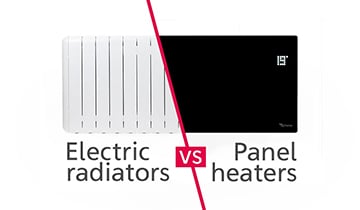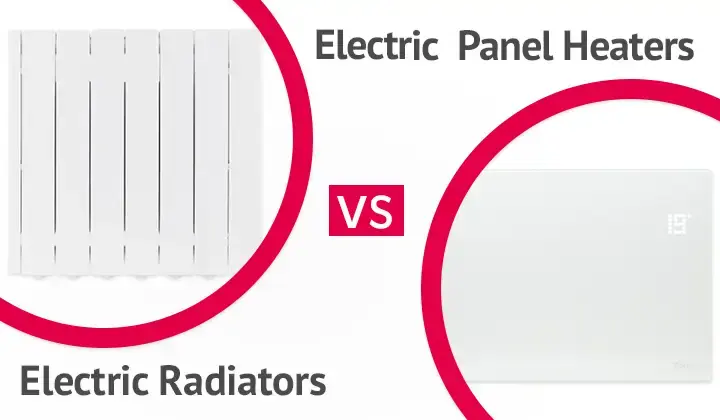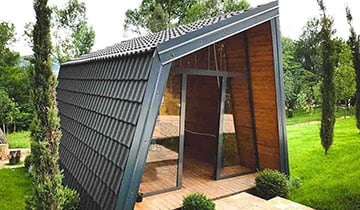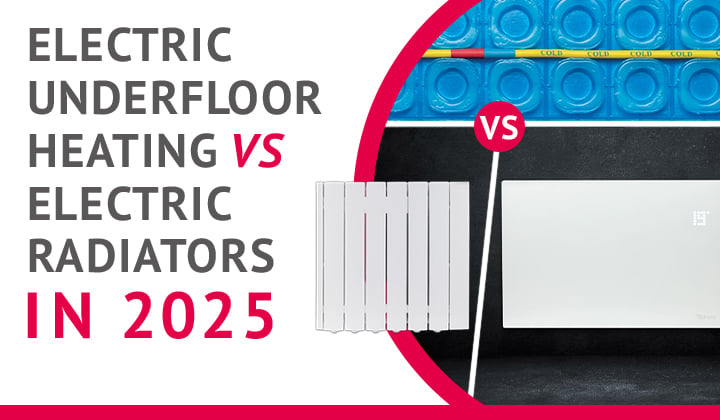18 min read
Should you choose electric radiators or panel heaters?
If you’re in the process of looking into installing electric radiators or panel heaters for your next project, this article could be just the thing...
4 min read
 Chris Hedges
:
Jan 19, 2023
Chris Hedges
:
Jan 19, 2023

In this blog we run through the difference between electric radiators and panel heaters.
If you are thinking about giving your home heating a bit of a refresh or considering installing electric heating in your next development, then you may be weighing up electric radiators or panel heaters. In this article we walk you through what you need to know when choosing between them as one option might be best suited than the other.
We’ll be covering:
How they work
Typical usage
Choosing the right size
And more...
First and foremost, no matter which one you choose both are types are standalone units that are installed on internal walls around the home. Unlike traditional central heating radiators, there’s no need for them to be connected by a network of pipes making them simple to install and easy to replace.
Electric radiators
Electric radiators work in a very similar to central hating radiators. The only difference being they don’t rely on a network of pipes to deliver the heat. Instead, electric radiators are either filled with a thermal fluid such as oil or a dry element like a ceramic core which stores the heat. Electric radiators such as our Oil Filled Radiator, heat spaces by using a combination of convection (heating the air around them) and radiant heat.
What do we mean by radiant heat?
Consider it like being warmed by the sun. If you step into the shade, it’s much cooler as you are out of the direct warmth the sun provides. Basically, heat by radiation warms people and objects directly.
Electric panel heaters
Electric panel heaters or convector heaters, as they are sometimes known by, warm spaces differently to electric radiators. An electric panel heater heats the air around it using convection. The warm air rises, cools and then sinks downwards before reheating again and circulating throughout the room. Examples of these types of heater include our Glass Panel Heater and Convector Panel Heater.
This type of heating can often cause the air in the room to feel drier and ‘stuffy’ but can be a quicker and cheaper way to get warmth to a room. You can also sometimes ‘smell the heat’. Sounds odd, doesn’t it? However, because the heating elements are exposed to air, it can burn the dust particles that are floating about in it which is why you can ‘smell the heat’ sometimes.
Ease of Installation
Electric radiators and panel heaters are incredibly easy to install and because they are electric, you don’t need to connect them to any pipework which keeps the installation cost to a minimum. You’ll find that how they are installed will vary depending on the type you buy. Both electric radiators and panel heaters can be simply plugged into a standard 3 pin socket or hard-wired into the mains. If you want to move or add any sockets to accommodate your new plug-in electric radiator or panel heater, you’ll need a qualified electrician to do that for you.
If the model you have chosen is hard-wired, you will also need to ask your qualified electrician to make the connection for you. The other benefit to this is that it can look tidier which is a better aesthetic for the room.
If you are not keen for them to be a permanent feature in a room, both electric radiators and panel heaters have free-standing options too.
Maintenance
Another similarity between electric radiators and panel heaters is that they require no maintenance. This is because they aren't connected to a combustible fuel (gas) and don’t contain moving parts. All, they will need is dusting from time to time which means saving you money on any annual maintenance.
Controllability
Being able to accurately control and programme your heating system is a must have to ensure energy efficiency is maintained and your heating bills don’t go through the roof. Both electric radiators and panel heaters are available with inbuilt thermostats. When looking at the technical specification of an electric radiator or panel heater, you’ll find information on the thermostat’s accuracy. For example, ‘accurate to +0.30C’ or ‘accurate to +0.80C’. The lower the number, the more accurate the thermostat. In addition, many models offer energy saving features such as ‘open window detection’ which is another way of helping you to save money.
Efficiency
Electric heating is 100% efficient at point of use because all the power drawn is converted into heat. Another big plus is electric heating produces much less carbon emissions compared with gas alternatives. However, it’s important to note that to make an electric heating system totally emission-free, the electricity used to power it must be 100% from renewable sources such as wind or solar.
When it comes to efficiency of electric radiators vs panel heaters, it boils down to the type of heat each produces. Electric radiators generate about two thirds of their heat by convection (heating the surrounding air) and the other third by radiation (heating objects and people directly). It is because of this that electric radiators are deemed more energy efficient. Whereas electric panel heaters produce all their heat via convection which is more prone to escaping quickly from open windows or opened doors.
Use
Here, the big difference is electric radiators are a much more economical choice as a primary heat source due to how they heat the room. Whereas electric panel heaters are better suited for heating rooms that do not require heating every day but require a quick burst of heat for spaces like spare bedrooms.
Cost
First and foremost, electric radiators are more expensive to buy compared to electric panel heaters but are cheaper to run. The reverse applies to electric panel heaters. Why? Fundamentally, electric panel heaters don’t store the heat and will continually draw power as they heat the air. Whereas electric radiators only draw on heat when heating up the oil or ceramic brick inside them.
Durability
Electric panel heaters must work harder to heat and maintain warmth in rooms compared to electric radiators which can increase the rate of wear and tear which is another reason electric panel heaters are not usually used as a primary heat source.
Electric panel heaters are usually manufactured using cheaper manufacturing methods because they have a lower price point in the market. This tends to make their durability lower than that of their electric radiator cousins.
When choosing an electric radiator or a panel heater you must ensure you select the right size with the right output for the space you want to heat and calculating the BTU will help you do this.
The British Thermal Unit (BTU) is a common measure of the heat a radiator with emit into the room. If the BTU is too low, the space will not reach the desired temperature. To calculate the BTU, you will need to measure the length, width and height of the room and take into account windows and patio doors.
If you know the output (watts) of the radiator, simply multiply that by 3.41 to get the BTU/hr and if you have the BTU, you can divide it by 3.41 to get the watts or output you need.
For example, if the output of the electric radiator is 600W then the BTU/hr would be 2,046:
600(W) x 3.41 = 2,046 (BTU/hr)
There are a variety of free BTU calculators online that can help. These include B&Q BTU Calculator and Mr Central Heating.
If you have a question about electric radiators or electric panel heaters for your next home or commercial project, please contact one of the ThermoSphere team who will be happy to help.

18 min read
If you’re in the process of looking into installing electric radiators or panel heaters for your next project, this article could be just the thing...

7 min read
According to the Rated People Home Improvement Trends Report 2022, additions such as a self-contained annex or a garden room are becoming...

12 min read
Electric heating is having a serious glow-up in 2025. Once seen as a backup or an afterthought, it’s now leading the way in energy-efficient home...